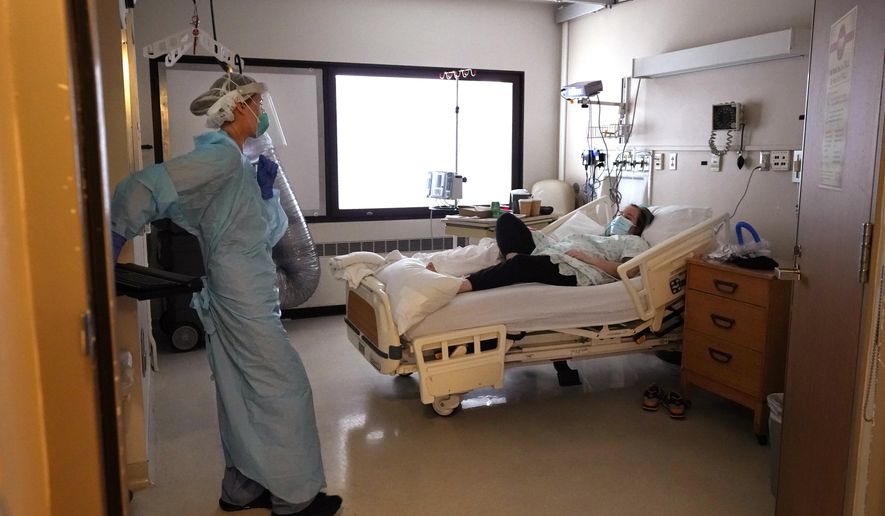A leading medical school association’s new diversity curriculum has sparked claims of discrimination against straight, White male doctors among conservative medical groups.
The Association of American Medical Colleges’ “Diversity, Equity, and Inclusion Competencies Across the Learning Continuum,” published this month, advises faculty and administrators on how to make students consider their “identity, power and privilege” when treating patients.
Students training under the new standards will be required to master the concepts of oppression, White privilege, social risk factors, “race as a social construct,” colonialism and intersectionality — “how one’s personal identities, biases, and lived experience” influence clinical practice.
Medical schools that revise their curriculum accordingly will ask graduates to identify “systems of power, privilege and oppression” that include “White privilege, racism, sexism, heterosexism, ableism, religious oppression” that result in minority groups receiving inferior medical treatment.
“This change is particularly important in light of growing evidence that health care provider biases and behaviors can be significant factors in health care disparities,” states the document, which also notes the influence of recent social justice protests.
Conservative health care advocacy groups warned this week that the new standards could politicize rather than improve medical school training.
“Are you going to have a system based on quality of work and what you’ve achieved, or one that pushes a political agenda? I think people need to consider the implications that this will have on the quality of the faculty of medical schools and therefore, the quality of students entering the healthcare workforce,” said Dr. Stanley Goldfarb, a former associate dean of curriculum at the University of Pennsylvania’s Perelman School of Medicine.
Dr. Goldfarb founded the nonprofit advocacy group Do No Harm to fight “woke” health care.
Dr. Scott Atlas, a radiologist and fellow at Hillsdale College’s Academy for Science and Freedom, said that COVID-19 lockdowns did more than White supremacy to create health disparities among impoverished groups.
“The first step should be admitting the massive harms to low-income families and minorities caused by the failed lockdowns advised by our public health leaders during the pandemic. The real priority should be teaching logic, ethics, risk benefit, and the importance of informed consent,” said Dr. Atlas, a member of the White House’s coronavirus task force during the Trump administration and a senior fellow at Stanford University’s Hoover Institution.
Medical schools will welcome the new standards, said Dr. Panagis Galiatsatos, an assistant professor at Johns Hopkins School of Medicine and a health equity lead in its Office of Diversity, Inclusion and Health Equity.
“This is an important step overall for medicine, which in its practice, research, and care, should reflect the populations of patients we are intended to serve,” Dr. Galiatsatos said. “This is an appropriate action, at the right time, and planting the notion of significance for future patients and physicians.”
The new guidelines are the latest in a series of racial justice pushes to remake U.S. health care.
The American Medical Association, which did not respond to a request for comment, has posted on its website a “strategic plan to embed racial justice” in the medical profession within the next three years.
The AMA pledges in the plan to “play a more prominent role in the current national reckoning on equity and justice” by using its “training platforms, programs, advocacy, communication and marketing infrastructure” as “levers for change.”
A survey of 16 self-identified “expert(s) in anti-Black racism” who work in medical schools, which nine researchers published April 22 in the Journal of the American Medical Association, recommends that all non-Black faculty members undergo mandatory anti-racism training as part of a “comprehensive intervention for dismantling anti-Black racism.”
“Black faculty and trainees remain severely underrepresented in academic medicine (AM) despite decades of diversity initiatives,” the survey concluded.
Gregory Quinlan, a former registered nurse who leads the conservative Center for Garden State Families in New Jersey, said the problem with selling the idea of systemic racism is the lack of hard evidence that health care providers consider race in treating patients.
“Over the last several decades, medicine in America has drifted away from providing treatment to a human being regardless of who they are to giving treatment based on your ability to pay. American health care is based on the bottom line, not the patient,” Mr. Quinlan said.
• Sean Salai can be reached at ssalai@washingtontimes.com.




Please read our comment policy before commenting.